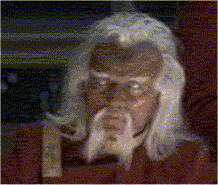How Combat Works
Combat is cyclical; everybody acts in turn in a regular cycle of
rounds. Combat follows this sequence:
- Each combatant starts out flat-footed. Once a
combatant acts, he or she is no longer flat-footed.
- Determine which characters are aware of their opponents at the
start of the battle. If some but not all of the combatants are aware of
their opponents, a surprise round happens before regular rounds of
combat begin. The combatants who are aware of the opponents can act in
the surprise round, so they roll for initiative. In initiative order
(highest to lowest), combatants who started the battle aware of their
opponents each take one action (either a standard action or a move action) during the
surprise round. Combatants who were unaware do not get to act in the
surprise round. If no one or everyone starts the battle aware, there is
no surprise round.
- Combatants who have not yet rolled initiative do so. All
combatants are now ready to begin their first regular round of combat.
- Combatants act in initiative order (highest to lowest).
- When everyone has had a turn, the combatant with the highest
initiative acts again, and steps 4 and 5 repeat until combat ends.
Combat Helper
Aid Another (Std Action)
Pg 135
May aid ally against opponent you both threaten. Hit AC10 to give
either +2 AC or +2 TH for ally
Strike a Weapon/Object (1 attack action)
PG 136
Provokes attack of opportunity.
Target may be only 1 size larger than weapon.
Opposed attack rolls to damage object
Bull Rush (1 attack or charge action)
PG 136
Provokes attack of opportunity from every creature that threatens you
(25% of hit wrong person!)
Opposed strength checks…move defender 5 ft+1 ft for every pt
difference
Failure means move back 5 ft
Disarm (1 attack action)
PG 137
Provoke attack of opportunity
Opposed attack rolls (+4 for per size category difference, +4 2 handed)
Success = disarm, failure means defender may immediately disarm you
with same check
Grapple (1 attack action )
PG 137
1) Provoke attack of opportunity – if damage by opponent grapple
fails!
2) Grab - Make melee touch attack – fail to hit grapple fails
3) Hold – Opposed check ( Base attck+str+size mod) –
failure means grapple fails. Success means unarmed attack damage can be
done as desired.
4) Move In – Now occupy same space
5) You are now grappling! No dex to AC and no threatened areas
Once grappling – EITHER grappler may as attack action (on
successful opposed grapple check):
1) Damage (deals unarmed damage – may use light
weapon)
2) Pin ( Held immobile 1 rd – may take unarmed
attacks after pin)
3) Break a pin (free ally held by opponent)
4) Escape ( Free yourself and move, one check vs. all
opponent’s grapples to free)
Overrun (Move part of charge action)
PG 139
Attempt to move thru opponent’s space. Must move at least 10ft.
Provoke attacks of opportunity normally. Opponent may elect to avoid
you (you pass normally) or block you. If blocked, a Trip check is made.
Success means you pass failure means opponent may trip you as normal
trip.
Trip (Melee touch attack)
PG 139
No attack of opportunity. Str check vs opponents Str or Dex (their
best).
Success means tripped and prone.
Failure means opponent may immediately try to trip you (same check).
